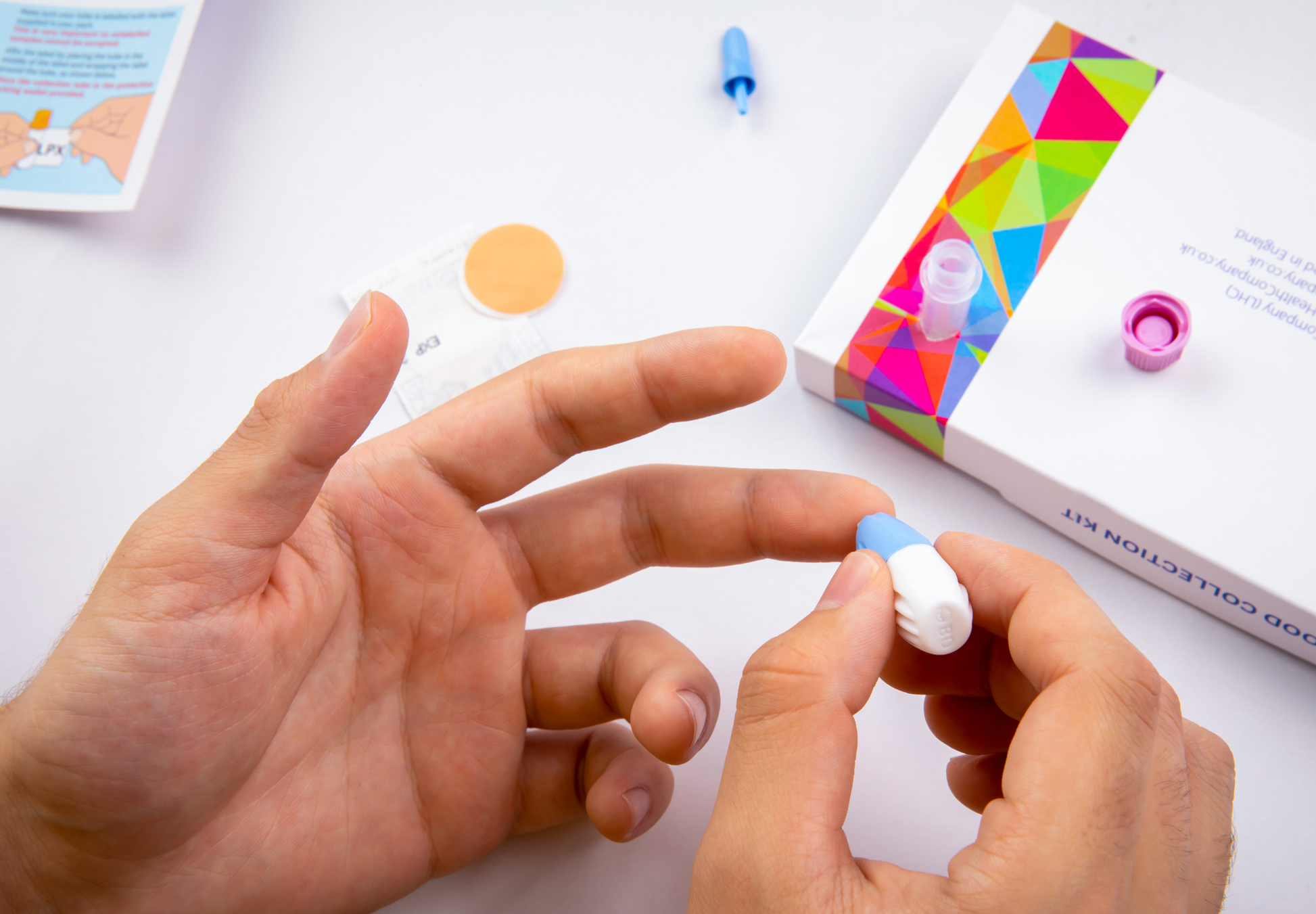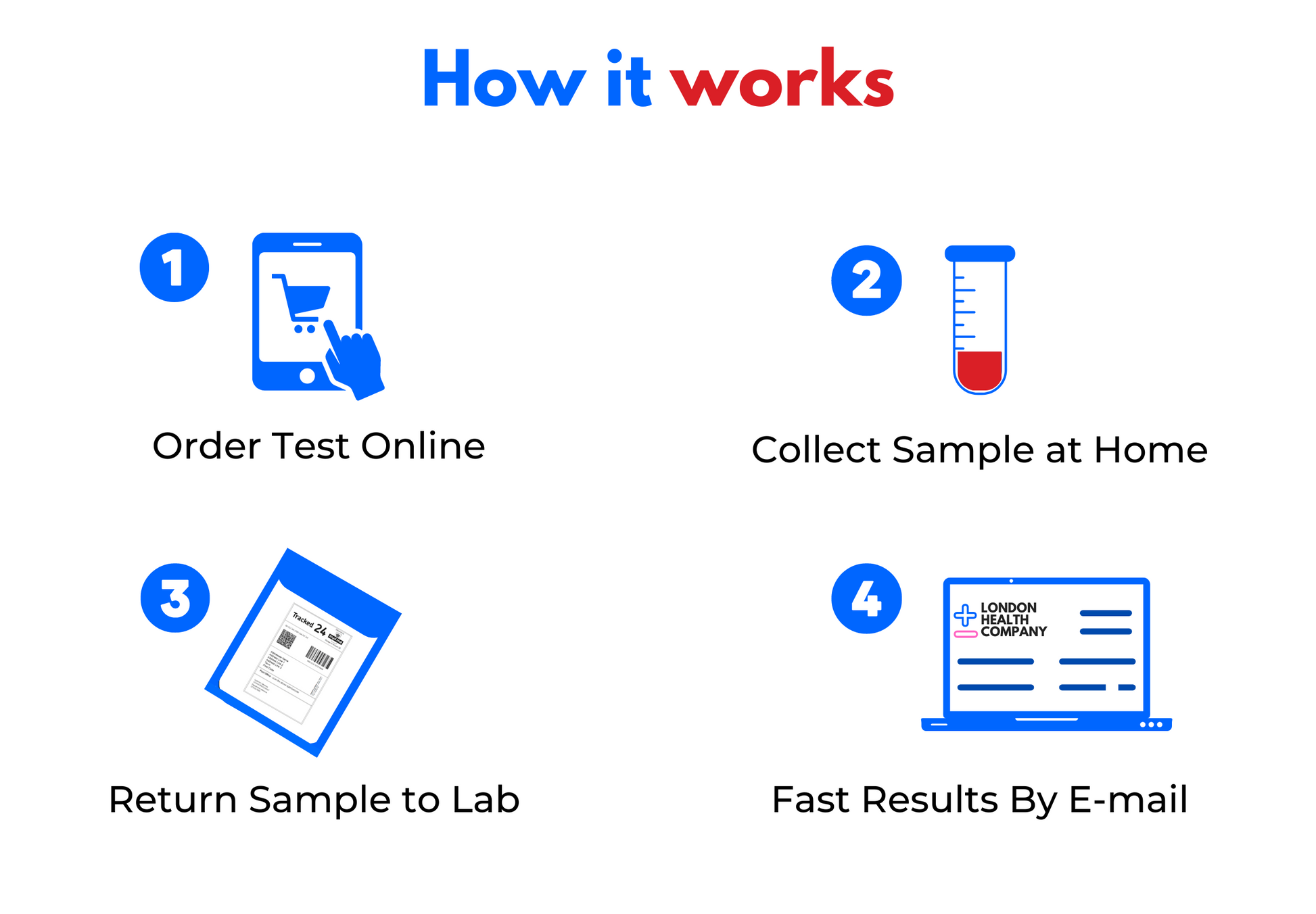Liver Function Health Check Blood Test, Lab Analysis. Available Across the UK
Liver Function Health Check Blood Test, Lab Analysis. Available Across the UK
Couldn't load pickup availability
Biomarkers/parameters tested & reported in this liver function blood test kit
- Total Protein
- Total Bilirubin
- Albumin
- Globulin
- GGT
- ALT
- AST
The liver blood collection home kit contains everything you need to collect blood and send it to our laboratory for analysis. Inside, you'll find lancets, instructions, lab request form, labels, tube, tube pouch, prepaid UN3373 envelope, tube holder, swabs, alcohol wipes, and plasters. No need to go to the post office; simply drop off your sample in the nearest red letterbox.
1. Alanine Aminotransferase (ALT):
- Normal Range: 7 to 56 units per L (U/L)
- ALT is an enzyme found in liver cells. Elevated ALT levels in the blood may indicate liver damage or inflammation. ALT is especially sensitive to liver conditions, making it a key marker for hepatic health.
2. Aspartate Aminotransferase (AST):
- Normal Range: 8 to 48 U/L
- Similar to ALT, AST is an enzyme present in liver cells. Elevated AST levels can suggest liver damage, but AST is also found in other organs, such as the heart and muscles, making it less specific for liver conditions.
3. Total Bilirubin:
- Normal Range: 0.3 to 1.9 milligrams per dL (mg/dL)
- Bilirubin is a yellow pigment produced during the breakdown of red blood cells. Elevated bilirubin levels can indicate liver dysfunction or issues related to the processing of bilirubin.
4. Albumin:
- Normal Range: 3.5 to 5.5 grams per dL (g/dL)
- Albumin is a protein synthesized by the liver. Decreased albumin levels may indicate liver damage or conditions affecting protein synthesis.
5. Total Protein:
- Normal Range: 6.0 to 8.3 g/dL
- Total protein measures the overall amount of proteins in the blood, including albumin and other proteins. Abnormal levels may indicate liver dysfunction or other underlying health issues.
Significance of Liver Blood Tests: Decoding Abnormal Results
-
Elevated ALT and AST:
- High levels may suggest liver damage, inflammation or hepatocellular injury. Elevated ALT is often considered more specific to liver conditions.
-
Abnormal Bilirubin Levels:
- High bilirubin levels may result from liver dysfunction or issues with the processing of bilirubin, leading to jaundice.
Common Indications for Liver Blood Tests:
-
Screening for Liver Diseases:
- Liver blood tests are often conducted as routine screenings to detect liver diseases or assess overall hepatic health.
-
Monitoring Liver Conditions:
- Individuals with known liver conditions, such as hepatitis or cirrhosis, regularly undergo liver blood tests to monitor disease progression and treatment efficacy.
-
Assessing Medication Effects:
- Certain medications can impact the liver, and regular tests help monitor potential side effects.
-
Diagnosing Symptoms:
- Symptoms like jaundice, abdominal pain, or unexplained fatigue may prompt liver blood tests to identify the underlying cause.
Share
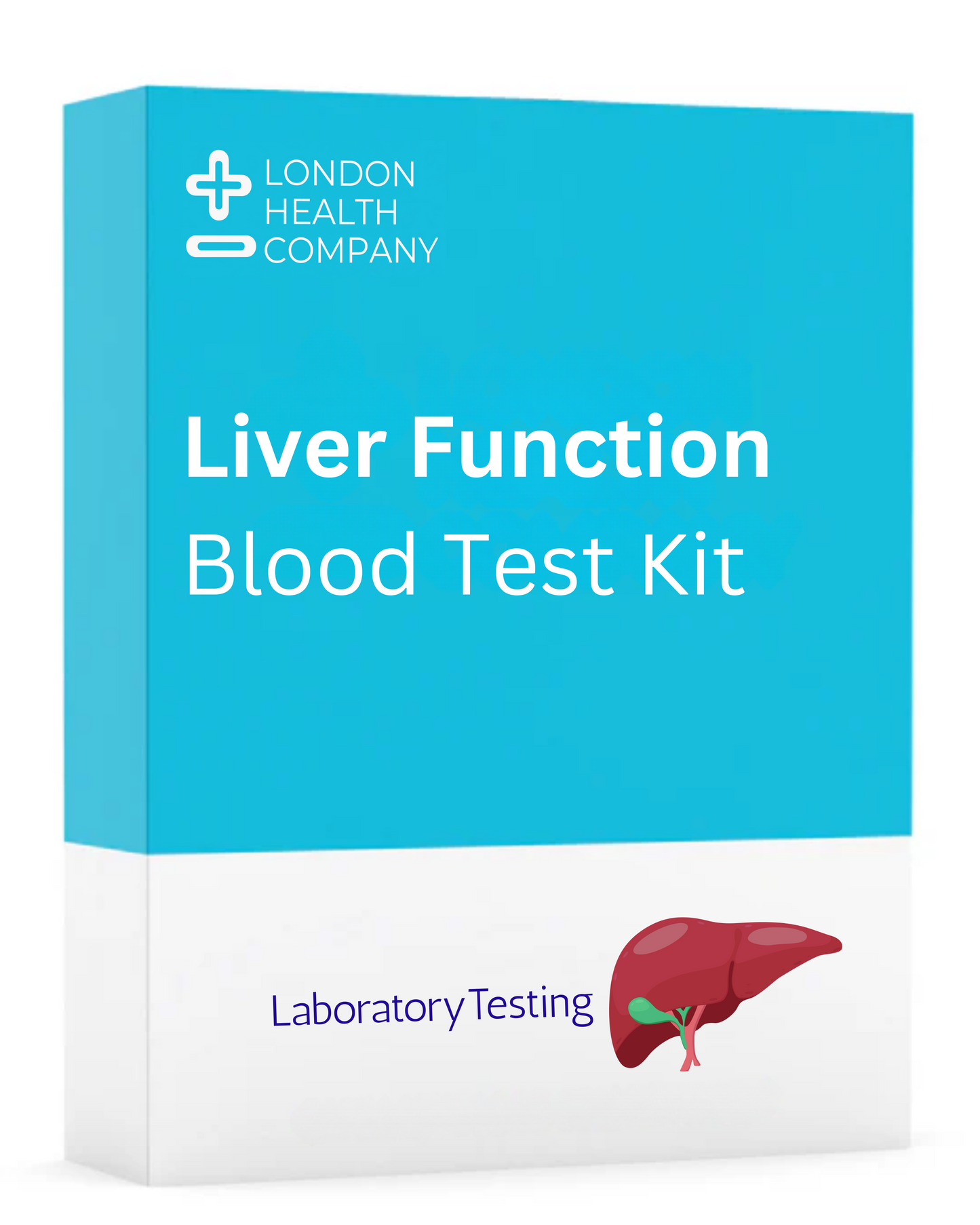
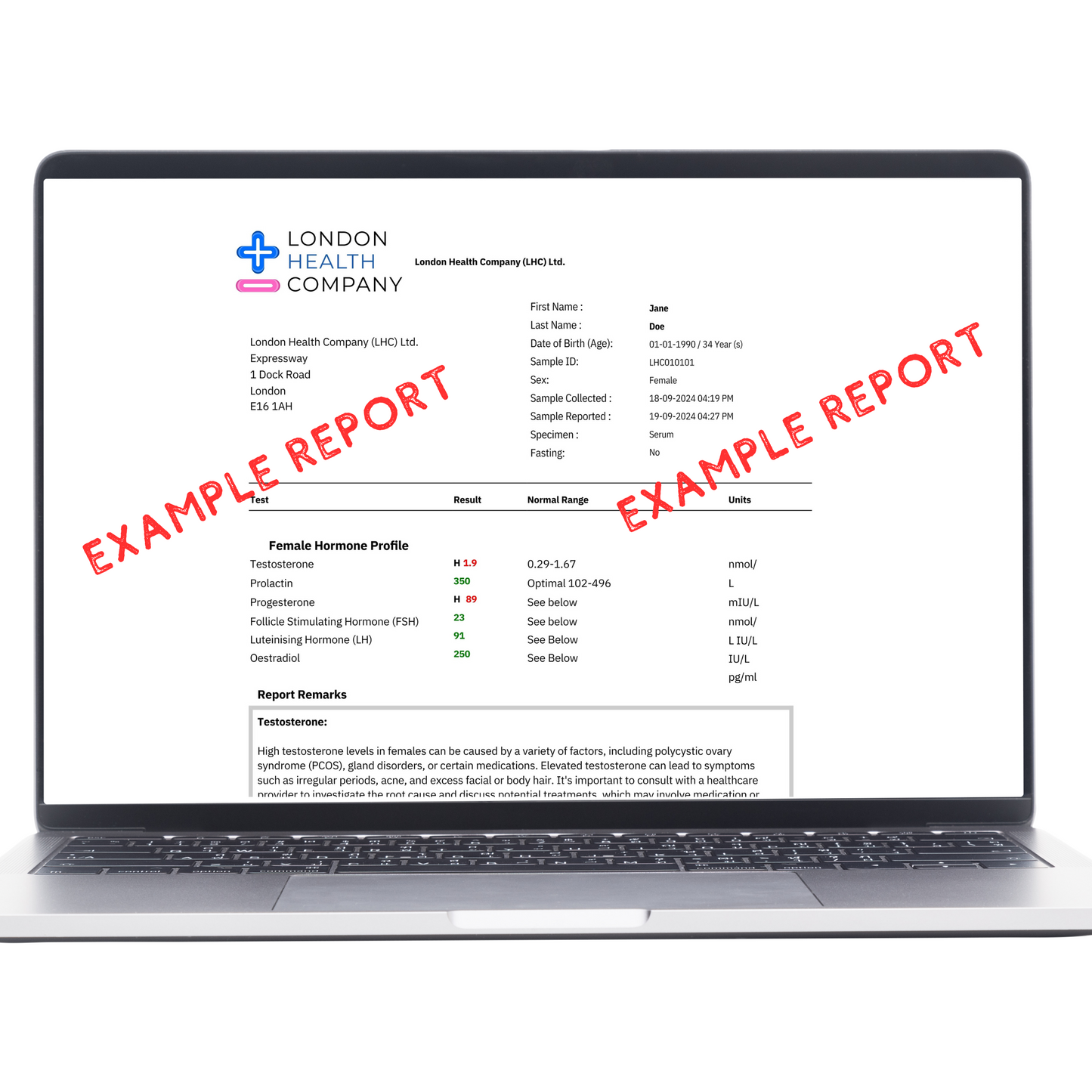
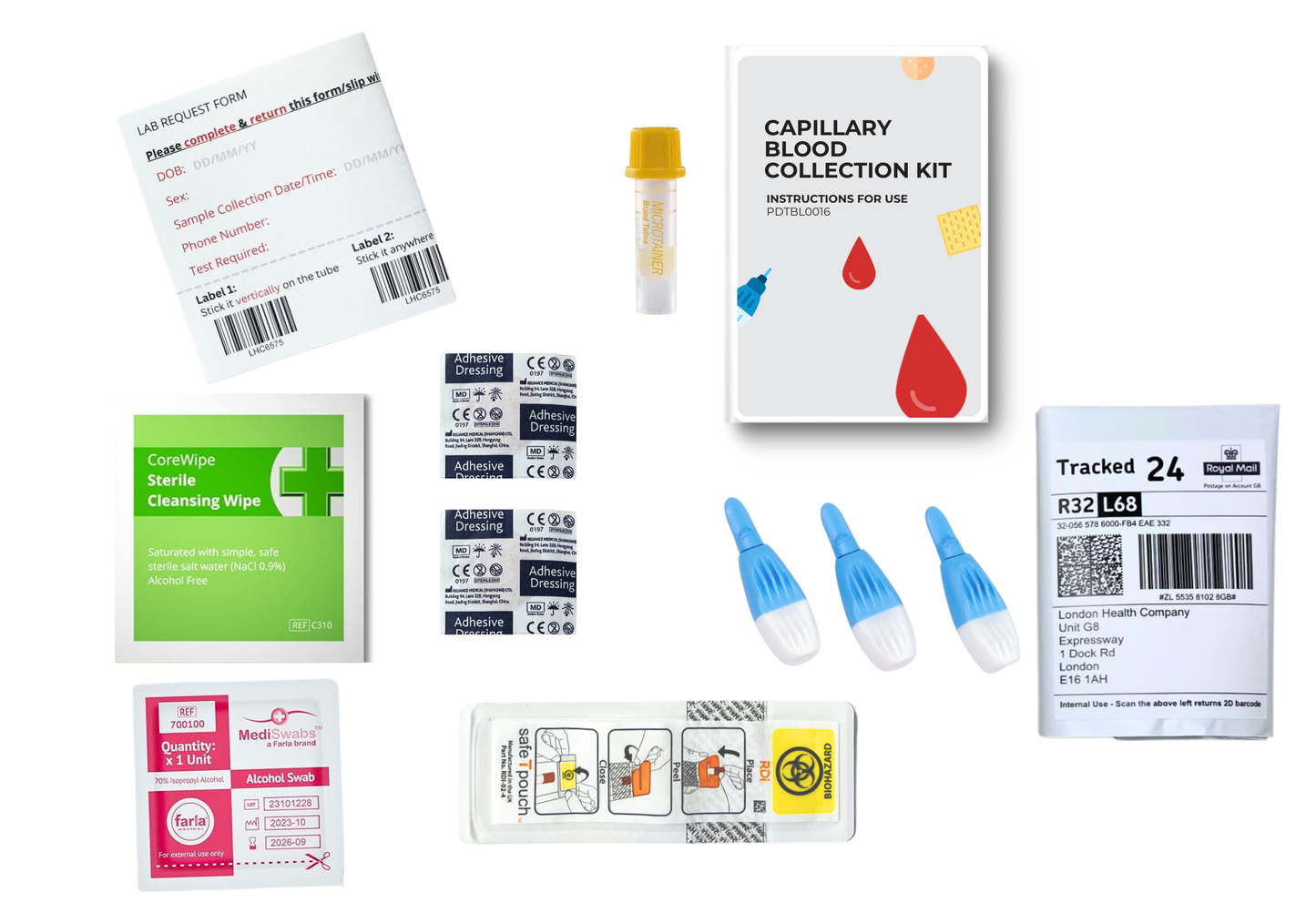
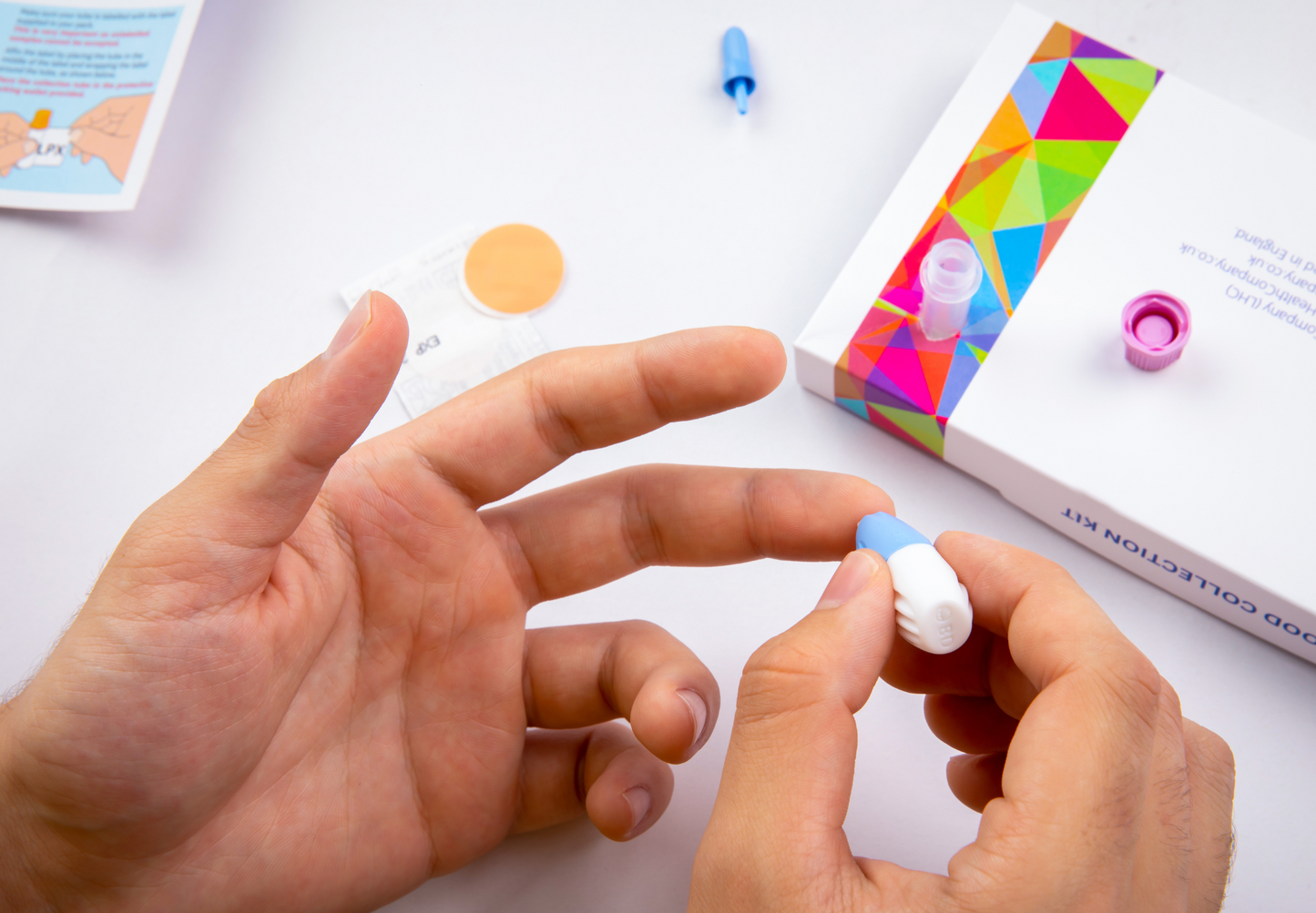

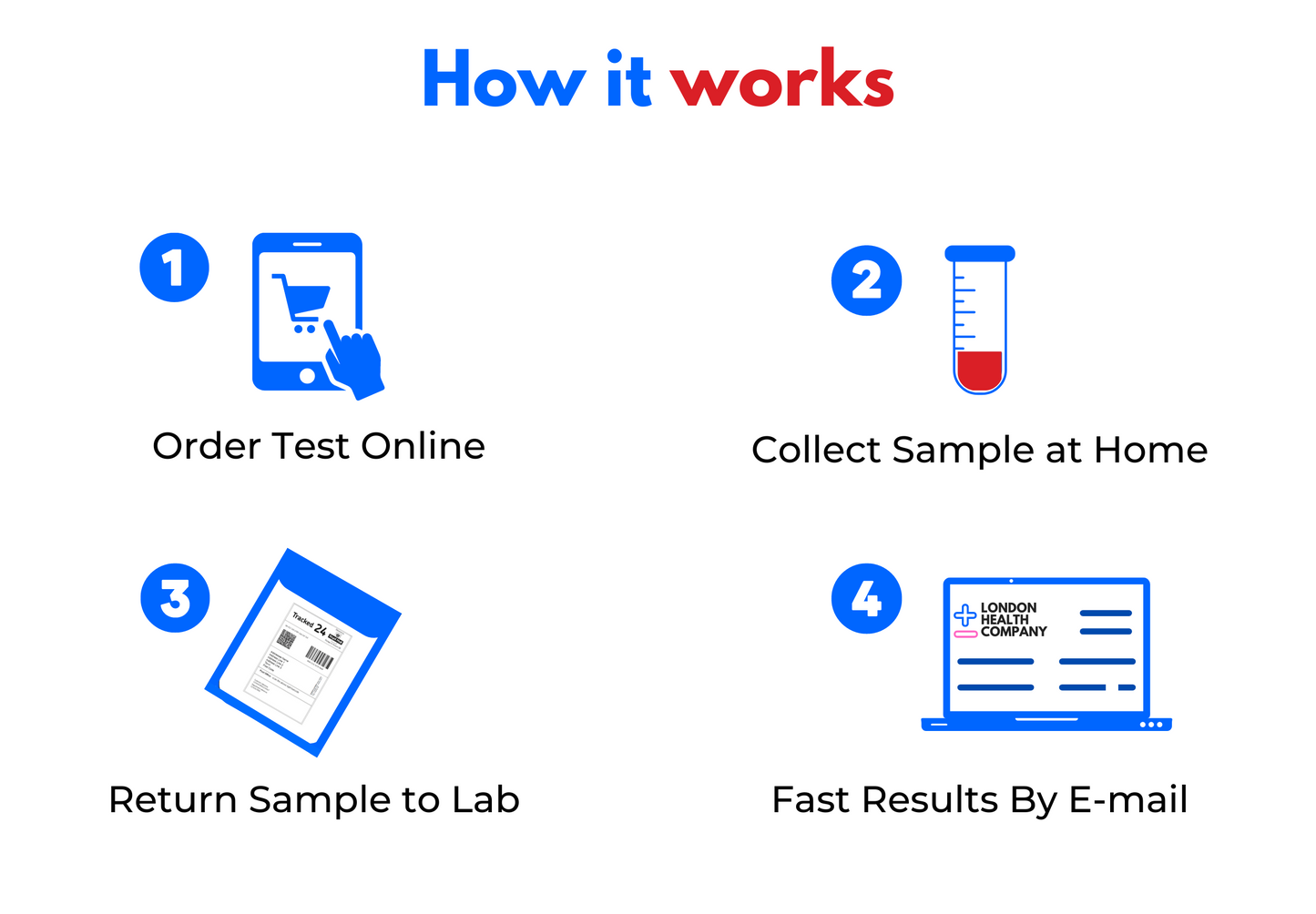
How it works
-
Order kit
Order the kit that you want based on what you want to be tested. We ship all orders placed before 1pm same day.
-
Collect your sample at home
Collect your own sample using a simple finger prick. Everything you need will be included in the kit.
-
Send your sample to the lab
Simply drop in any red letter box. No need to arrange for courier pickup or pay for returns. Remember to register online using the unique sample ID to get your results.
-
Receive results
We will analyse your sample and send you results by email within 24-48 hours. A copy can be sent to your GP/surgery if you wish.
Health & Medical Information Related to our Tests
View all-
The Build vs. Break Index: Understanding the T:...
The T:C ratio is a biological marker of the balance between building up (Anabolic/Testosterone) and breaking down (Catabolic/Cortisol). It serves as a physiological gauge for how well the body is...
The Build vs. Break Index: Understanding the T:...
The T:C ratio is a biological marker of the balance between building up (Anabolic/Testosterone) and breaking down (Catabolic/Cortisol). It serves as a physiological gauge for how well the body is...
-
Understanding Prostatitis: What Recent Research...
Prostatitis is inflammation or infection of the prostate, which can be acute, chronic, or chronic pelvic pain syndrome (CP/CPPS). Symptoms include pelvic pain, urinary changes, and discomfort during urination. Treatment...
Understanding Prostatitis: What Recent Research...
Prostatitis is inflammation or infection of the prostate, which can be acute, chronic, or chronic pelvic pain syndrome (CP/CPPS). Symptoms include pelvic pain, urinary changes, and discomfort during urination. Treatment...
-
Iron Deficiency and Hair Loss in Women: What Do...
Hair loss is a common concern among women, and iron deficiency has long been suspected as a contributing factor. A well-designed systematic review and meta-analysis published in Skin Appendage Disorders examined...
Iron Deficiency and Hair Loss in Women: What Do...
Hair loss is a common concern among women, and iron deficiency has long been suspected as a contributing factor. A well-designed systematic review and meta-analysis published in Skin Appendage Disorders examined...
-

Blood vs. Urine Pregnancy Tests: Why Your Choic...
Discover why clinical blood pregnancy tests offer superior accuracy and sensitivity for early pregnancy dating compared to standard at-home urine tests.
Blood vs. Urine Pregnancy Tests: Why Your Choic...
Discover why clinical blood pregnancy tests offer superior accuracy and sensitivity for early pregnancy dating compared to standard at-home urine tests.




